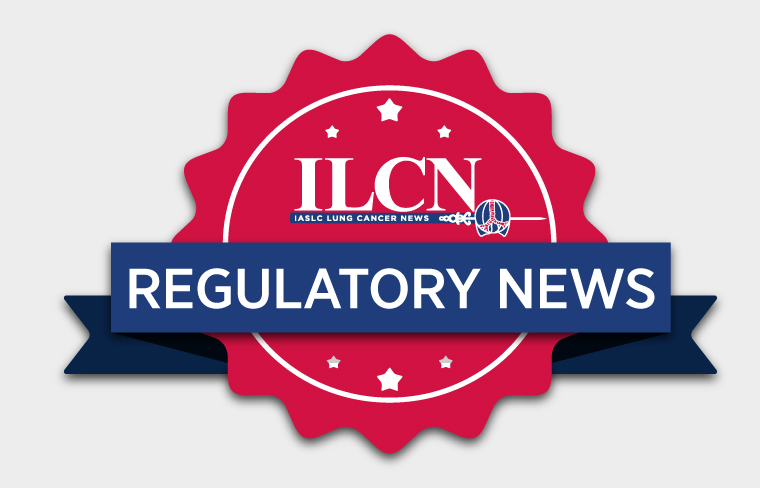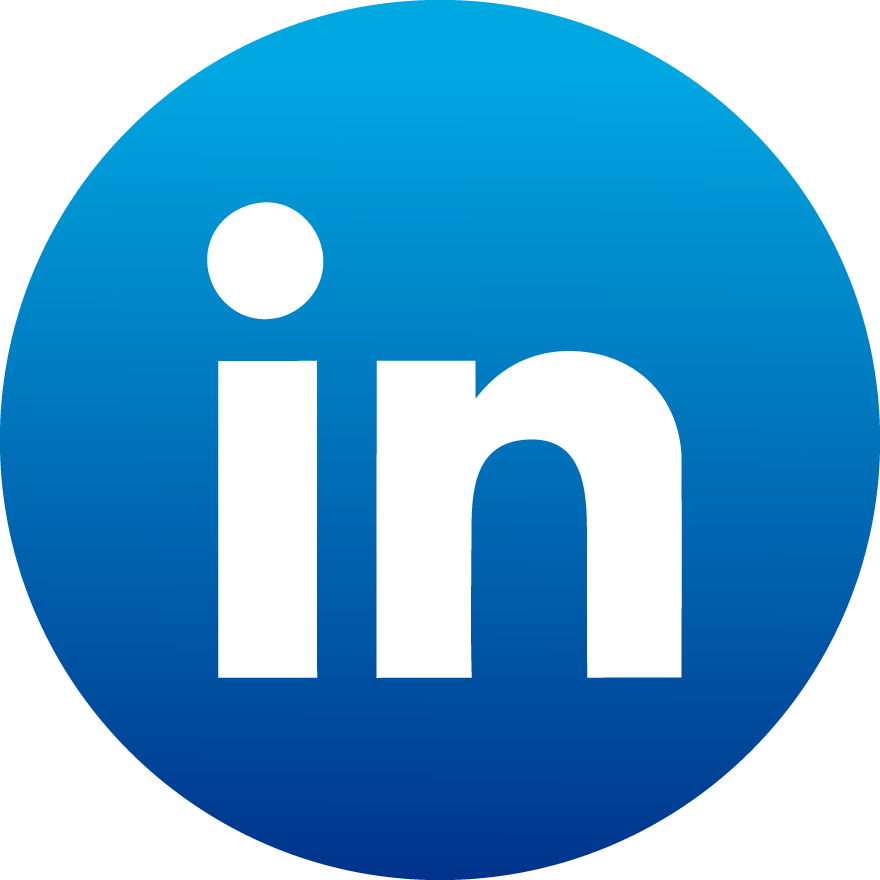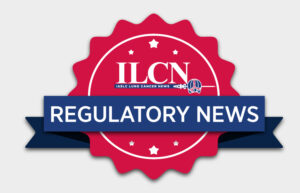
Two antibody-drug conjugates (ADCs) have made headlines in the treatment of EGFR-mutated non-small cell lung cancer (NSCLC). While one has received the green light from the US Food and Drug Administration (FDA), the other has voluntarily withdrawn its Biologics License Application (BLA).
Datopotamab Deruxtecan Achieves FDA Approval
The FDA has granted accelerated approval to datopotamab deruxtecan (Dato-DXd) for the treatment of previously treated EGFR-mutated NSCLC, following demonstrated improvements in progression-free survival (PFS) and overall survival (OS).
Dato-DXd is a trophoblast cell-surface antigen-2 (TROP2)-directed ADC.
The decision is supported by data from the phase II TROPION-Lung05 study, which evaluated the safety and efficacy of Dato-DXd in patients with previously treated advanced or metastatic NSCLC with actionable genomic alterations.1
Patients received 6 mg/kg of Dato-DXd intravenously every 3 weeks on day 1 of each 21-day cycle.1 Eligibility criteria included:
- Pathologically documented advanced or metastatic NSCLC with actionable genomic alterations (EGFR, ALK, ROS1, NTRK, BRAF, MET exon 14 skipping, or RET)
- Prior treatment with one to two cytotoxic therapies (including one platinum-containing regimen) in the metastatic setting and one to two targeted therapies specific for the actionable genomic alteration present
- Radiographic disease progression on or after the most recent treatment
- Measurable disease by RECIST v1.1 assessment
- ECOG performance status of 0 or 11
The primary endpoint was objective response rate (ORR), and secondary endpoints included:
- Duration of response (DoR)
- Disease control rate (DCR)
- Clinical benefit rate
- PFS
- Time to response
- OS
- Safety1
Among the 137 patients treated with Dato-DXd, the ORR was 35.8% across a range of mutation types.1 In patients with EGFR mutations, the ORR was 43.6% and 23.5% among heavily pretreated patients with ALK rearrangements.1
Dato-DXd also demonstrated a DCR of 78.8% and durable responses with a median DoR of 7 months.1 The median PFS was 5.4 months, and the median OS was 13.6 months at the data cutoff.1
Dato-DXd showed a favorable safety profile, with a low incidence of hematologic or treatment-related toxicities that were grade 3 or higher.1
While targeted therapies have expanded treatment options in NSCLC, overcoming resistance remains a challenge, especially in EGFR- or ALK-mutated disease.
Dato-DXd’s demonstrated efficacy across patients with and without actionable genomic variations suggest it may offer a valuable new option for patients with disease progression following prior therapy.
Biologics License Application for Patritumab Deruxtecan is Withdrawn
A press release from Daiichi Sankyo confirmed the voluntary withdrawal of a BLA for patritumab deruxtecan (HER3-DXd).2 This decision followed discussions with the FDA and results from the phase III HERTHENA-Lung02 trial, in which HER3-DXd did not meet statistical significance for OS.2
The global, multicenter, open-label trial examined HER3-DXd monotherapy versus four cycles of platinum-based chemotherapy (PBC).2 The results were presented during the 2025 American Society of Clinical Oncology (ASCO) Annual Meeting.
The primary analysis showed a statistically significant improvement in PFS for HER3-DXd compared with PBC (median PFS: 5.8 months vs. 5.4 months) in patients with EGFR-mutated NSCLC with disease progression after tyrosine kinase inhibitor (TKI) therapy.3
Other outcomes included:
- Median DoR: 5.7 months (HER3-DXd) vs. 5.4 months (PBC)
- ORR: 35.2% (HER3-DXd) vs. 25.3% (PBC)
- Median intracranial PFS: 5.4 (HER3-DXd) vs. 4.2 months (PBC)3
However, in the third interim analysis, the median OS was 16 months for HER3-DXd compared with 15.9 months for PBC, and it failed to meet statistical significance.3
“While we are disappointed with the overall survival results of HERTHENA-Lung02, we are conducting further biomarker analyses to better identify patients that may benefit from patritumab deruxtecan to guide our continued development in lung cancer,” Ken Takeshita, MD, Global Head, R&D, Daiichi Sankyo, said in a press release.
“We remain confident in the broad development program of this HER3-directed antibody drug conjugate, which currently includes multiple clinical trials across 15 types of cancer,” he said.
References
- 1. Datopotamab Deruxtecan in Advanced or Metastatic Non–Small Cell Lung Cancer With Actionable Genomic Alterations: Results From the Phase II TROPION-Lung05 Study
- 2. Patritumab Deruxtecan Biologics License Application for Patients with Previously Treated Locally Advanced or Metastatic EGFR-Mutated Non-Small Cell Lung Cancer Voluntarily Withdrawn
- 3. Tony S. K. Mok et al. Patritumab deruxtecan (HER3-DXd) in resistant EGFR-mutated (EGFRm) advanced non-small cell lung cancer (NSCLC) after a third-generation EGFR TKI: The phase 3 HERTHENA-Lung02 study.. JCO 43, 8506-8506(2025). DOI:10.1200/JCO.2025.43.16_suppl.8506










